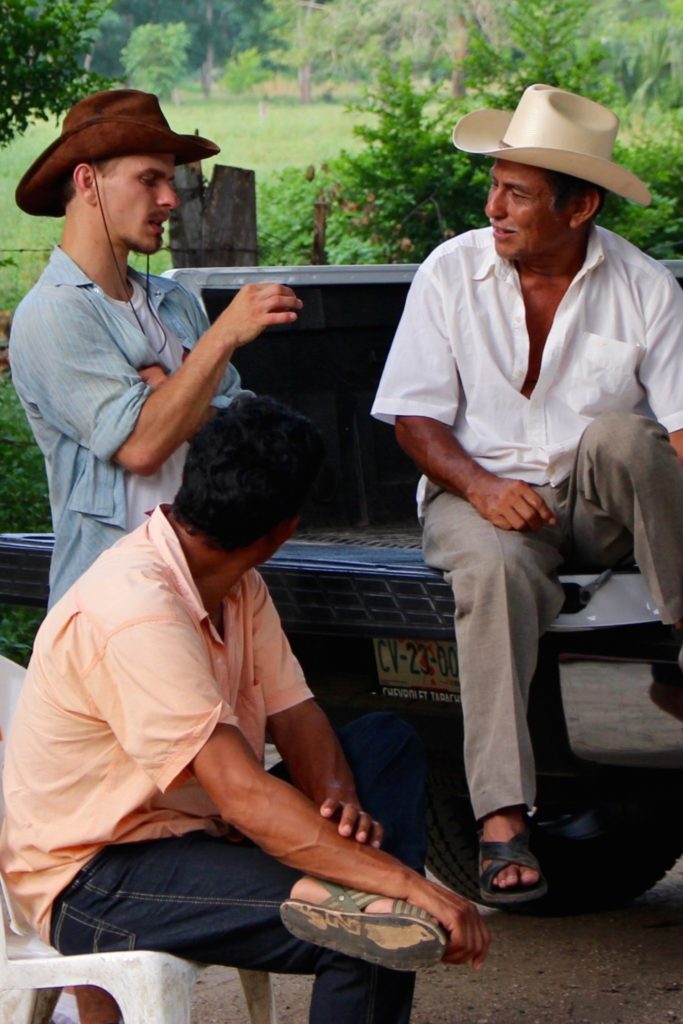LEAD. COLLABORATE. CREATE CHANGE.
Our mission is to inspire and train the next generation of conservation leaders with the theoretical and applied knowledge and skills in conservation disciplines through instruction, field-work and research that is integrated and experiential, and which values cross-cultural and inter-disciplinary perspectives.
The Conservation Leadership program resides in the Human Dimensions of Natural Resources Department in the Warner College of Natural Resources at Colorado State University. Conservation Leadership is an 18 month graduate program, which includes two semesters of full-time coursework followed by a Capstone Project. The coursework in Conservation Leadership prepares you to work in the conservation field by developing new skills and knowledge, such as leadership skills, collaboration techniques to bring together diverse stakeholders, communication tools, and innovative methods for achieving conservation goals. The Capstone Project gives you the opportunity to apply your skills and knowledge to a real conservation issue by working with a community partner to develop a project deliverable – such as a management plan, communication plan, or pilot program – to help the organization further their conservation work.
Download our Annual Report here.
Learn about the history of the Conservation Leadership program here.
OUR DIFFERENCE
Our guiding values include innovation, experiential-learning, inter-disciplinary curriculum, cross-cultural perspectives, and practical and applied approaches to graduate education.
We received the award for Excellence and Innovation in Graduate Education from the Western Association of Graduate Schools in 2013. Find out why:

Conservation Leadership student discussing conservation with community members in Mexico.
- Experiential Learning
Inside and outside the classroom you can expect hands-on approaches that require working in teams to address a conservation issue. You will practice new skills and tools through interactive class sessions, field trips, workshops, and course assignments. - Inter-disciplinary
Our curriculum combines scientific concepts and knowledge with coursework rooted in the social sciences, including leadership, collaboration, systems thinking, policy, and economics. - Cohort-based Learning Community
All students complete the Conservation Leadership curriculum together and take all the same courses. This provides you with a support network and allows for concepts to transcend between the different courses. Students can learn from each other’s diverse perspectives and unique viewpoints to enhance the learning community. - Immersion Weeks
During the two semesters of coursework on campus, there are some weeks where we forego regular class sessions and students are immersed in a specific conservation issue. You will meet with experts and stakeholders to acquire important skills and view conservation issues from multiple perspectives. - Applied Projects
Classroom assignments and Capstone Projects create opportunities for you to put your knowledge to practice and create a lasting impact. Our program balances theoretical content with a strong focus on applied skills that are common in the conservation field, such as facilitation techniques, creating management plans, and communication. - Connections with Real World Practitioners
We invite practitioners to work with students during trainings, workshops, Capstone Projects, and guest speaking, giving you a network of individuals to consult with in your future career. - Cross-cultural Experiences
Recognizing that conservation challenges cross boundaries and cultures, we integrate experiences that expose our students to diverse perspectives, communication styles and belief systems. We examine cross-cultural aspects of conservation issues in courses and a number of field trips. In addition, many Capstone Projects require students to hone their skills to work effectively across cultures.
Read more about our innovative approach to graduate education here.
CORE OBJECTIVES
Conservation Leadership has seven core objectives that all students should be able to achieve upon graduating from the program:
- Analyze conservation issues from multiple disciplines and stakeholder perspectives
- Collaborate with diverse stakeholders and individuals
- Utilize systems thinking to examine conservation issues
- Apply interdisciplinary problem-solving approaches to conservation issues
- Apply inquiry tools and methods to address conservation issues
- Effectively communicate conservation via varied media, academic outputs and presentations
- Demonstrate leadership skills to work effectively in group environments
Download our brochure to learn more about Conservation Leadership.

